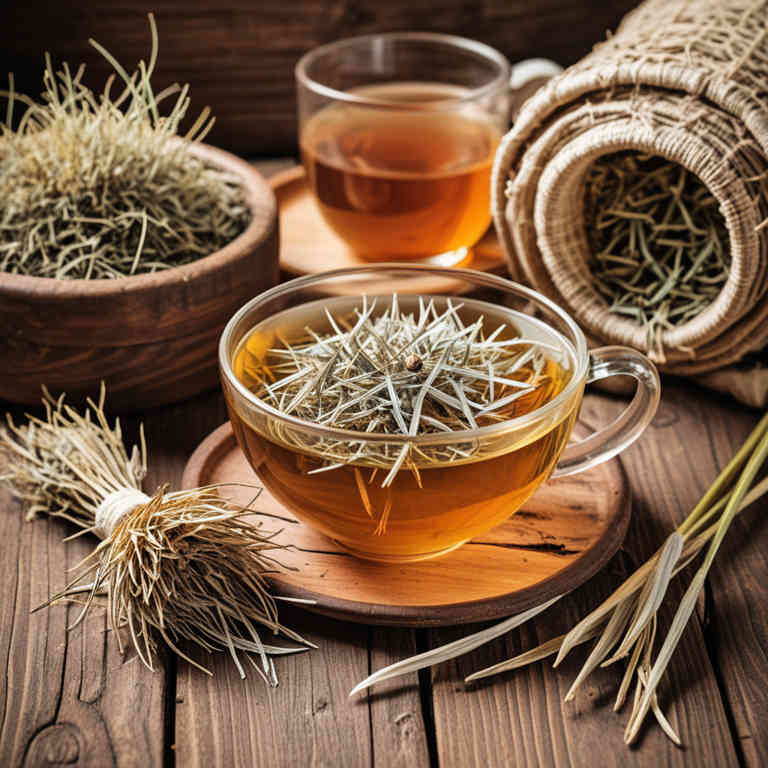Cymbopogon citratus tea for medicinal use

Cymbopogon citratus tea is a herbal infusion made from the leaves of the lemongrass plant, which is native to tropical regions.
It is commonly used in herbalism for its calming and digestive properties. This tea is often consumed to help alleviate stress, anxiety, and digestive discomfort. Its mild citrus flavor makes it a popular choice for both medicinal and culinary use.
In traditional medicine, it is also believed to support respiratory health and promote relaxation.
Uses
Cymbopogon citratus tea has been used to promote relaxation, relieve stress, and support digestive health for centuries.
Historically, it was widely used in traditional medicine systems such as Ayurveda and Chinese medicine to treat ailments like anxiety, indigestion, and respiratory issues. In modern times, it is commonly consumed as a calming herbal tea, often referred to as lemongrass tea, due to its citrusy aroma and soothing properties. Its essential oils are also used in aromatherapy and as a natural insect repellent.
Today, it is valued for its potential antioxidant and anti-inflammatory benefits, making it a popular choice for holistic wellness practices.
Benefits
Cymbopogon citratus tea has health benefits such as reducing stress and anxiety, improving digestion, and supporting respiratory health.
This herbal tea, also known as lemongrass tea, contains compounds like citral and myrcene that have calming and anti-inflammatory properties. It is often used to promote relaxation and ease symptoms of indigestion or bloating. Additionally, it may help in lowering cholesterol levels and enhancing immune function.
Regular consumption of Cymbopogon citratus tea can contribute to overall well-being and natural wellness.
Constituents
Cymbopogon citratus tea active constituents include citral, myrcene, limonene, and geraniol, which are responsible for its aromatic and therapeutic properties.
These compounds contribute to the tea's calming effects and may help reduce stress and anxiety. Citral, in particular, is known for its antimicrobial and antifungal properties, supporting immune health. Limonene and geraniol are also associated with digestive benefits and may aid in reducing inflammation.
Overall, the active constituents of Cymbopogon citratus tea make it a popular herbal remedy for promoting relaxation and supporting overall well-being.
Preparation
To make Cymbopogon citratus tea, start by boiling fresh or dried lemon grass (Cymbopogon citratus) in water.
Once the water is boiling, reduce the heat and let it simmer for about 5 to 10 minutes to allow the flavors and beneficial compounds to infuse into the liquid. Strain the tea into a cup and add a touch of honey or lemon juice for enhanced taste. This tea is known for its calming properties and is often used to aid digestion and reduce stress.
It is a popular herbal remedy in many traditional medicine systems around the world.
Side Effects
Cymbopogon citratus tea may lead to gastrointestinal discomfort, such as nausea, vomiting, or stomach cramps, particularly when consumed in large amounts or on an empty stomach.
It may also cause allergic reactions in individuals sensitive to citronella, including skin irritation or respiratory issues. Long-term use could potentially affect liver function, though more research is needed to confirm this. Additionally, it may interact with certain medications, such as blood thinners, increasing the risk of bleeding.
It is important to consult a healthcare professional before using this tea, especially for prolonged periods or in combination with other treatments.